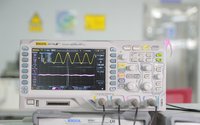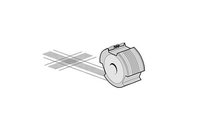Basic knowledge of certification, accreditation, inspection and testing
Date:2022-12-12 16:22:18 Views:2348
Want to know what is certification, approval, inspection and testing? Certification and accreditation inspection and testing are collectively referred to as conformity assessment in the world. It is an internationally accepted basic rule. Its essential attribute is "delivering trust and serving development", which is characterized by marketization and internationalization. It is called the "medical certificate" of quality management, the "letter of credit" of market economy, and the "passport" of international trade. This paper collects and sorts out some materials, hoping to be of great reference value to all readers.
_20221212162049_508.png)
(1) Certification
Certification refers to the conformity assessment activities in which a certification body certifies that products, services and management systems conform to relevant technical specifications, mandatory requirements or standards of relevant technical specifications.
The English meaning of the word "certification" was originally an action to issue supporting documents. The definition of "certification" in ISO/IEC is: "the activity of a third party that can be fully trusted to verify that an identified product or service conforms to a specific standard or normative document."
For example, for product A produced by the first party (the supplier or the seller), the second party (the demander or the buyer) cannot determine whether its quality is qualified, but the third party will determine. The third party shall be responsible for both the first party and the second party. The certificate issued by the third party shall be able to win the trust of both parties. Such activities are called "authentication".
This means that the third-party certification activities must be open, fair and equitable in order to be effective. This requires that the third party must have absolute power and prestige, must be independent of the first party and the second party, must have no economic interest with the first party and the second party, or have the same interest, or have the obligation and responsibility to safeguard the rights and interests of both parties, in order to win the full trust of both parties.
(2) Recognition
It refers to the conformity assessment activities in which the accreditation body recognizes the competence and professional qualifications of certification bodies, inspection bodies, laboratories and personnel engaged in certification activities such as review and audit. " Generally speaking, accreditation refers to the activities in which an accreditation body certifies the technical capabilities of certification bodies, inspection bodies, examination and verification bodies, etc.
(3) Inspection
It refers to the determination of compliance with relevant regulations by relying on human experience and knowledge and using detection data or other information.
(4) Detection
It refers to the activity of using instruments and equipment to test and measure relevant objects or processes and obtain relevant data according to technical standards and specifications. The output result is data.
(5) Inspection and testing organization
It refers to a professional technical organization established according to law to inspect and test products or specific objects specified in laws and regulations by using technical conditions and professional skills such as instruments, equipment and environmental facilities in accordance with relevant standards or technical specifications.
(6) Conformity assessment
Conformity assessment mainly includes testing, inspection, certification and approval. It refers to the proof that the specified requirements related to products, processes, systems, personnel or institutions have been met. The main forms are: certification certificate, mark, recognition certificate, mark, inspection certificate, test report, etc. The basic function of conformity assessment is to provide accurate quality signals, and thereby transfer trust and service development
(7) National Quality Infrastructure (NQI)
Quality infrastructure is a system consisting of organizations and policies, relevant legal and regulatory frameworks and practices needed to support and improve the quality, safety and environmental protection of products, services and processes, including measurement, standards, conformity assessment (accreditation, certification, inspection, testing) and market supervision.
(8) Qualification certification of inspection and testing institutions
China Inspection Body and Laboratory Management Approval (CMA for short) refers to the evaluation permission granted by the market supervision and administration department in accordance with laws and administrative regulations on whether the basic conditions and technical capabilities of the inspection and testing institutions that issue data and results that can prove to the society meet the legal requirements. It is the basic admission system of China's inspection and testing market. The market supervision department and other competent departments shall manage the code of conduct and supervision requirements of inspection and testing institutions in accordance with relevant laws and regulations.
(9) Capability verification
The evaluation activity to confirm whether the inspection and testing institution continues to meet the technical capacity requirements for qualification recognition by using the comparison between laboratories, the inspection and testing of the same or similar items according to the pre established criteria, and the comparison between the data and results of the inspection and testing institution and the specified value.
(10) Inter laboratory comparison
The organization, implementation and evaluation of the measurement or testing of the same or similar articles by two or more laboratories according to the pre specified conditions.
The above is the certification, recognition, inspection and testing related content organized by the core testing sub group. I hope it will be helpful to you. Our company has a team of professional engineers and industry elites, and has built three standardized laboratories with an area of more than 1800 square meters, which can undertake a variety of test projects such as electronic component test verification, IC authenticity identification, product design material selection, failure analysis, functional testing, factory incoming material inspection and tape weaving.




 Weixin Service
Weixin Service

 DouYin
DouYin
 KuaiShou
KuaiShou





















